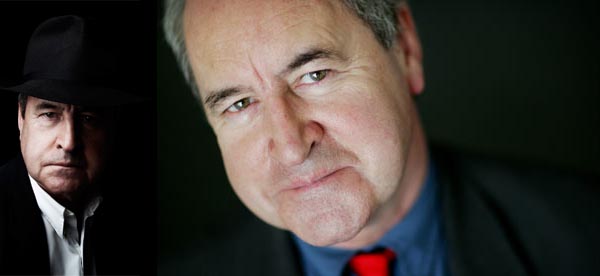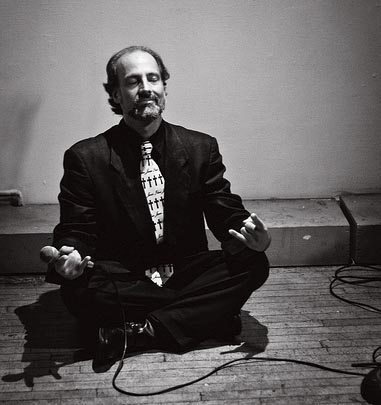Classical music is an estimable topic that I feel disinclined to write about. This diffidence has little to do with any shortage of enthusiasm or background knowledge (you’ll find Saint-Saens, Telemann, Cage, and Mozart all in my music collection, often played in rhythmic counterpoint to activities both sinful and innocently quotidian). It may reflect a quiet desire to keep this joyful terrain unsullied by scabrous assaults of the overly examined. It may have something to do with certain upper-class exigencies which I identify as ridiculous – the requirement to dress up and spend a lot of money just to hear a thunderous orchestra play something you love, the paucity of robust alcoholic beverages, the prohibition on spontaneous enthusiasm within dull and often overpraised buildings designed almost exclusively for fuddy-duddies, and the unshakable vibe of being sized up by condescending assholes pegging you as some bumpkin who inexplicably sneaked past the velvet rope. Whenever I have the pleasure of attending a swank cultural affair for something I am genuinely excited about, there remains a small part of me that wonders if I’ll suffer a fate not unlike the poor couple losing the necklace in the Guy de Maupassant story. A decade of my life gone because of a misunderstanding.
That sounds like hyperbole. Maybe I can explain it another way. I can summon words to describe or connote how I feel about tangible experiences, specific people, books, movies, and even pop music –- perhaps because these all feel sufficiently democratic and translatable. But if I am to be truthful here, it’s also because I have little to lose. I don’t wish to suggest that these topics are less significant simply because I can relate them with greater ease and facility. I know that I can get worked up enough by the Dorian mode in Michael Jackson’s “Billie Jean” to write about it somewhere down the line, but I can’t see myself writing about well temperament or Pythagorean tuning anytime soon. I can approach Finnegans Wake and The Tree of Life, amalgamating my genuine enthusiasm for these works of art with some detailed theory. Yet for classical music, it’s the emotional experience which counts more than any theory. I leave such expatiations (or perhaps expiations?) to minds greater than mine.
This sharp contrast between privileged appreciation and mass entertainment, which I am admittedly identifying from a highly subjective vantage point, may be one reason why cinema’s offerings about classical music remain, to my mind, fairly lackluster. Perhaps I complain because the music itself is loaded with greater life than some slanderous biography, but this is not altogether the case. The sole exception (indeed, one of the few directors who went well out of his way to claim this turf) may be Ken Russell, the underrated auteur who worked his way from bizarre television docudramas (see this glorious opening for The Debussy Film, if you don’t believe me) to such fearlessly libertine flicks as The Music Lovers and Lisztomania. Whether depicting Tchaikovsky confronting his sexuality on a moving train or Richard Wagner as a reanimated Nazi Frankenstein with a machine gun/guitar, Ken Russell valued eye-popping entertainment over historical accuracy. And if one examines the best classical music biopics (Amadeus, Thirty Two Short Films About Glenn Gould, Hilary and Jackie), one discovers additional resistance to the dry facts of life. Let’s face it: the classical music biopic, perhaps more than any other biopic subgenre, is at its best when the slander runs deep.
It wasn’t a surprise to see writer-director Rene Féret take silly liberties with Mozart’s Sister, suggesting not only that Maria Anna Mozart (played by Féret’s daughter, Marie) captured the romantic attentions of the kid who would grow up to be King Louis XVI (the monarch who eventually lost his head altogether), but that this Dauphin would ask young Maria Anna (disguised as a boy and singing quite high without skepticism from the heir apparent) for fresh compositions. The Dauphin was shy in real life. And at one point in the film, he remarks upon this shyness. Yet Féret has cast the somewhat vigorous Clovis Fouin in the role. Fouin doesn’t so much as quiver. He doesn’t so much as cower or blush. He’s some hipster plucked from the 20th Arrondissement, waiting for a ripe moment to languorously puff on his nonexistent Gauloise. I hope he was paid well.
Yes, it’s true that the Mozart Family traveled around Europe. But isn’t it convenient that the Mozarts break an axle a few miles from an abbey? And isn’t it convenient that the Dauphin’s sister is there (along with a few sisters more, who happen to be conveniently visiting)? And isn’t it also convenient that Maria Anna becomes an inadvertent messenger between clandestine lovers so as to kickstart a plot that isn’t in the history books and that isn’t even good enough for a trashy potboiler. If Féret had offered us something extremely preposterous along the lines of Russell, I might have gone along for the ride. But Féret has besmirched the Mozarts: not because he has offered us historical horseshit, but because it’s such ho-hum historical horseshit.
Féret’s mythical Maria Anna apparently plays the violin, but is confined to the clavichord by her father Leopold, who insists that women are unfit to be real musicians. Yet if Leopold was such a repressive patriarch, why did he give Maria Anna top billing in the advertisements he wrote for his family? It was Maria Anna reaching a marriageable age that felled her career. And that age was eighteen, not fifteen (as it is suggested here; or perhaps younger, given that we see Maria Anna have her first period and thus “become a woman”). It was also Maria Anna who surrendered control of her life to her father, including choice of suitors. While musical scholars have debated the question of what precisely Wolfgang owes Maria Anna, and it is clear from the documents that Mozart and his sister were very close, Féret’s film isn’t especially interested in using this preexisting information to build an enticing story. And if Maria Anna is such a thwarted feminist icon (so repressed that even her neighbors ask her to stop playing the clarichord when she’s on her own teaching piano later in the film), why doesn’t this film show her teaching young Wolfgang a few lessons (in anticipation of her own teaching) or picking up some of Leopold’s tricks? Well, it doesn’t really suit Féret’s convenient untruths, which establish Maria Anna as someone on backup vocals and clavichord to Wolfgang’s fiddling. In other words, if you’ll pardon my tacky yacht rock comparison, Maria Anna is Michael McDonald to Wolfgang’s Christopher Cross. And I’m pretty certain she was a bit more than this. We see Leopold teaching Wolfgang composition, with Maria Anna trying to listen in behind a closed door. But does this really represent the truth when one considers that, in 1764, it was Maria Anna who wrote down Wolfgang’s first symphony when Leopold fell ill?
Look, I’m hardly a Mozart expert. But when the historical record proves more compelling than the reductionist drama, one has to wonder why these prevarications were offered in the first place. If Féret wanted to make a film about a repressed woman composer, there were plenty of other stories to dwell from. Presumably, Féret settled upon Mozart’s Sister because it was the most dependable title for film financing. While I appreciated Féret’s punkass effrontery in offering Barry Lyndon-like slow zooms (although, to be clear, he is no Kubrick), I was not impressed by his middling efforts to sift and synthesize from the available record in a manner that mostly bores. Here was an opportunity to translate an elite interest for the hoi polloi, but Féret, in flattening the story and avoiding the juicy bits, only furthers the chasm.



